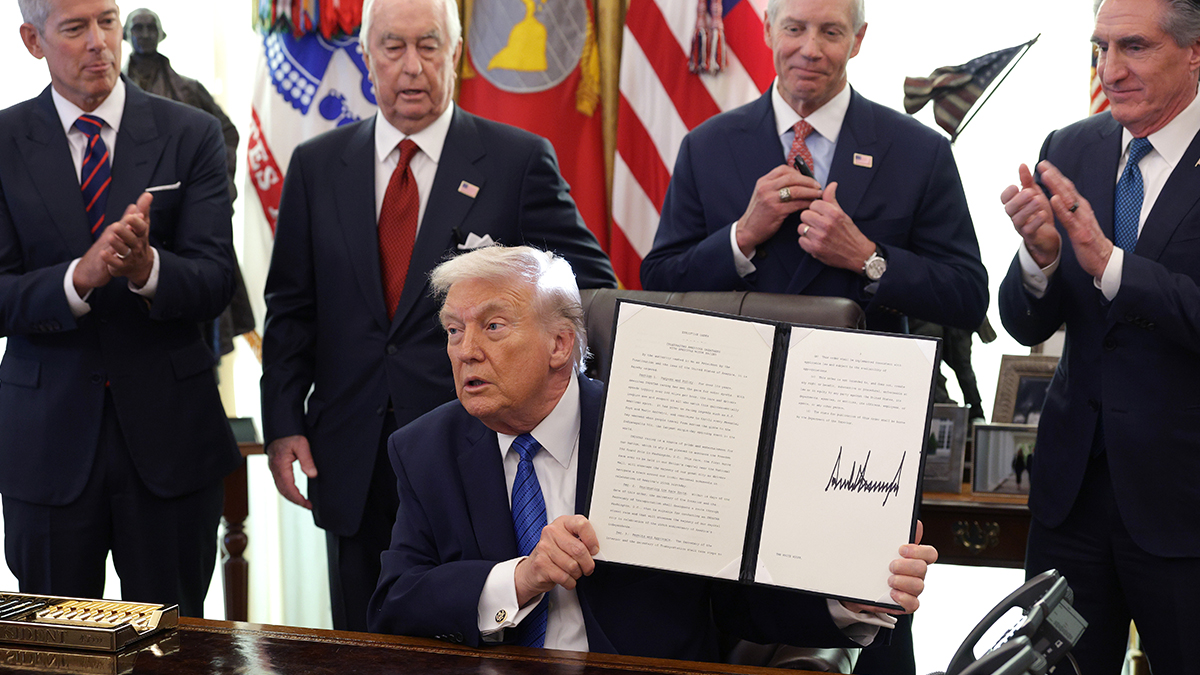A bill that could ban American use of the popular social media app TikTok has passed in the US House of Representatives and is one step closer to becoming law. If it passes in the Senate, President Joe Biden has indicated he would sign the bill if it made it to his desk. The bill is called the Protecting Americans from Foreign Adversary Controlled Applications Act.
Basically, the U.S. government thinks that TikTok poses a national security risk because it’s run by a Chinese company called ByteDance. In China, the government can force companies to hand over user data. If China does this, it would potentially receive the personal information of around 170 million of US TikTok users. The bill, if passed, would give ByteDance about six months to sell the popular app. If that doesn’t happen, then TikTok becomes illegal, meaning it will no longer be allowed to appear in app stores.
In order for a bill to become law, it has to pass both houses of Congress with a majority vote. In the House of Representatives, the bill passed with a vote of 352 to 65. Fifty Democrats and 15 Republicans voted in opposition of the bill. Interestingly, the bill had a rare show of bipartisan support in a House that seems to relish infighting. It moved out of the vaunted House Energy and Commerce Committee unanimously, something that doesn’t happen very often, underscoring how aware lawmakers are of the perceived threat.
This doesn’t necessarily mean it’s smooth sailing in the Senate. Majority Leader Chuck Schumer did not say whether or not he would support the bill, instead saying that “The Senate will review the legislation when it comes over from the House.” Virginia Democrat Mark Wagner, the Senate Intelligence Committee Chairman, said he would support the bill, as did the committee’s top Republican, Marco Rubio.
Democrat Senator Maria Cantwell, who chairs the Senate Commerce, Science and Transportation Committee, said she would also support the bill but wants to make sure they get it right. She said she wants the Senate to actualize a process that will also apply to other foreign entities and other potential threats to national security.
As expected, both TikTok and China are opposed to the legislation. ByteDance said the bill is an attack on constitutionally protected rights, including freedom of expression for its millions of users. It launched a call to action campaign in the app to urge people to call their representatives and voice their concerns about the bill, which many congressional offices have reported is happening. Beijing called the bill an “act of bullying.”
TikTok has also said the security concerns posed are not really an issue. It said that most of the company is owned by Susquehanna International Group and BlackRock, and that there are three Americans on its five-person board of directors. The company said it spent $1 billion on a plan to store U.S. user information on American cloud computing company Oracle. It also released a study that said the social media app contributed $24 billion to the U.S. economy.
“TikTok has become an integral part of the social fabric of the U.S., serving as a powerful platform for both individuals and businesses to learn, engage, and thrive. As this study shows, TikTok has been a huge benefit to SMBs, helping them find new customers, grow their businesses, and create jobs,” the company said.
If the bill does pass, ByteDance would be compelled to sell TikTok and guarantee that it has no control over the app or any of its algorithms. The Justice Department would have the authority to punish anyone who works with the app or offers it for download. A potential issue is the difficulty ByteDance would face if it’s trying to sell. With its incredibly high user base, the company would be prohibitively expensive. It’s also unclear whether the company would just sell its U.S. side, or the whole global operation.
Ironically, the few companies that could afford TikTok, like Google, or Meta, the parent company of Facebook, would probably be barred from doing so due to antitrust laws. Even if a sale cleared all those hurdles, China could decide not to cooperate. As recently as last year, China said it would oppose a sale. The last time the U.S. government tried to force a sale, in 2020, Beijing put a digital export restriction on tech that had similarities to the TikTok algorithm.
Another issue would be the window given to sell the app. Jon Leibowitz, former chairman of the Federal Trade Commission, said that while six months is “a perfectly reasonable timeframe for a divestiture or forced sale,” Chinese opposition would greatly complicate things. “There are a lot of unanswered questions at the core of this divestiture legislation,” he said.
If a sale isn’t plausible, it would be possible for TikTok to spin off through an initial public offering (IPO), but that would depend on the specifics of the deal — ie whether they were just separating the American portions of the app, or the whole global footprint of it.
The White House is urging legislators to take “swift action” on the bill and keep the momentum they gained with the House passage. Also, White House press secretary Karine Jean-Pierre said the Biden administration doesn’t expect the bill to adversely affect China-U.S. relations.
“We are going to continue our work, you know, working with our relationship with China,” Jean-Pierre said. “That’s not going to stop. But the president has always been clear, National Security Adviser Jake Sullivan has always been clear: When it comes to our national security, when it comes to data that’s coming from Americans, we’re always going to make sure that we’re addressing those threats that we face.”
Former President Donald Trump, who supported a ban in 2020, said he didn’t support a ban this time around. Paul Gallant, a political analyst for investment banking company TD Cowen, illustrated what it means for the Republican nominee for President to take that position.
“Trump’s opposition is a meaningful new headwind to this bill becoming law,” he said. “A lot will depend on whether he goes to the mat on this TikTok bill the way he did with the border security bill.”











Published: Mar 13, 2024 07:10 pm